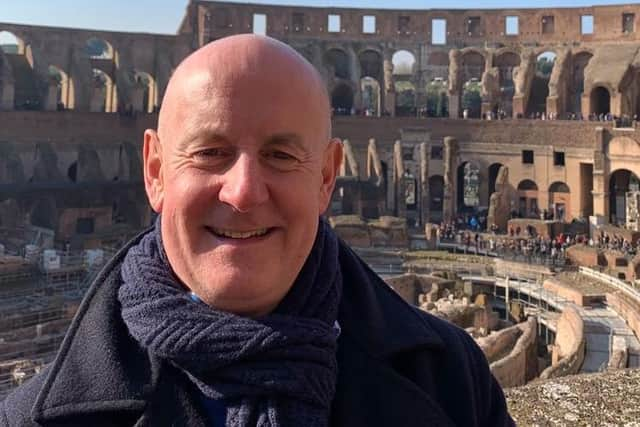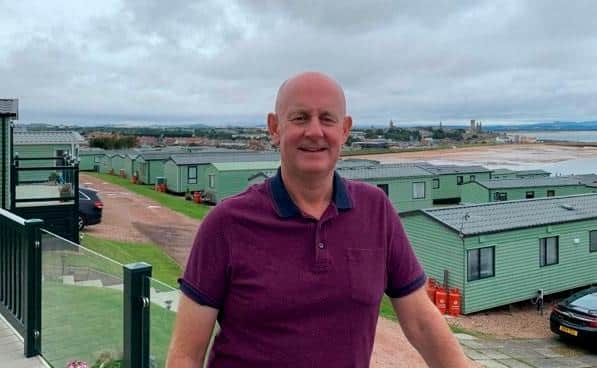New drug treatment for Scottish grandfather with ‘super rare’ brain tumours
According to The Herald, Paul Dornan, 59, knows of only one other person - in California - suffering from the secondary brain tumours, which are the result of kidney cancer, chromophobe renal cell carcinoma.
He was diagnosed with kidney cancer in May 2017, after passing blood in his urine, and a four-inch tumour was found in his left kidney which was removed during an operation.
Advertisement
Hide AdAdvertisement
Hide AdBut not all the cancer could be removed due to the proximity to the aorta, the main blood vessel carrying blood away from the heart.


And the cancer spread to his abdomen, neck and chest in September 2017, as well as his brain, which were found by chance in May this year.
However a new drug being trialled in Scotland, Keytruda, has shrunk all the tumours.
Grandfather-of-one Paul said: "I usually get scanned from the neck down but, purely by chance, the hospital at Larbert extended that slightly up to my head and they found a number of brain tumours.
"They weren't sure how long they'd been there.


"I have a relatively rare form of kidney cancer called chromophobe and secondary brain tumours resulting from that are almost unheard of.
"I asked Kidney Cancer UK, the charity, if they know of anyone else in the UK with these and they said 'no'.
"I've only managed to find one person in California who has a similar brain tumour."
The father-of-three, from Alva in Clackmannanshire, was admitted onto a new clinical trial in May, studying Keytruda in combination with a different drug for advanced kidney cancer - Inlyta (axitinib).
Advertisement
Hide AdAdvertisement
Hide AdA follow-up scan 12 weeks later revealed that all the former chemical industry consultant's tumours - not only those in his brain, known as Chromophobe RCC brain metastases. - have shrunk.
Keytruda, also known as Pembrolizumab, is a humanized antibody, that targets a protein found on the surface of lymphocytes called Programmed Cell Death Protein (PD-1).
The drug is given by slow injection into a vein.
A message from the Editor
Thank you for reading this story on our website. While I have your attention, I also have an important request to make of you.
The dramatic events of 2020 are having a major impact on many of our advertisers - and consequently the revenue we receive. We are now more reliant than ever on you taking out a digital subscription to support our journalism.
Subscribe to scotsman.com and enjoy unlimited access to Scottish news and information online and on our app. Visit https://www.scotsman.com/subscriptions now to sign up.
By supporting us, we are able to support you in providing trusted, fact-checked content for this website.
Joy Yates
Editorial Director
Comments
Want to join the conversation? Please or to comment on this article.